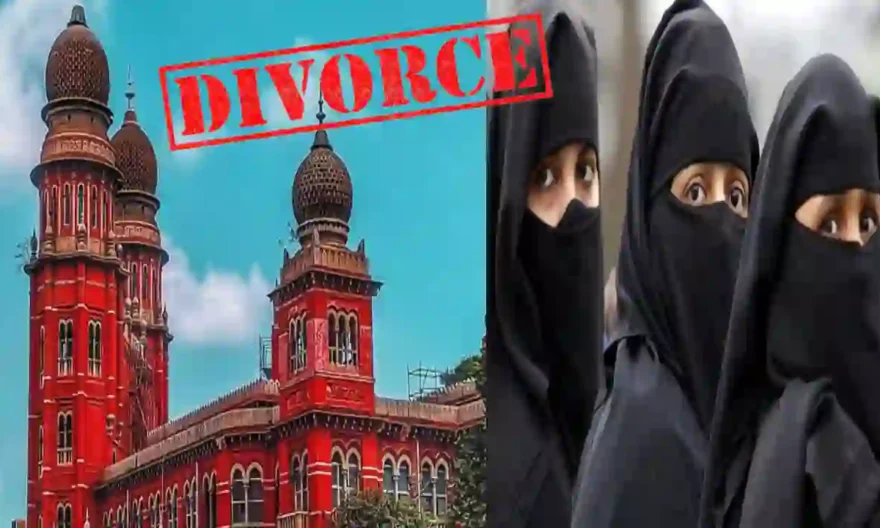
The Madras High Court ruled on Thursday that Muslim women can only exercise their right to divorce through a “Khula” (divorce proceeding initiated by the wife) by approaching a family court rather than private bodies such as a Shariat Council.
Khula is a divorce granted to the wife in the same way that talaq is granted to the husband.
The Court held, “They are not courts or dispute arbitrators. Such practice has also been frowned upon by the courts. As a result, such Khula certificates issued by private entities are invalid.” Khula marriage dissolution cannot be pronounced or certified by private entities.
In his judgment on a writ petition filed by a man seeking to have his wife’s Khula certificate quashed, Justice C. Saravanan quashed the impugned certificate issued in 2017 by the Shariat Council, Tamil Nadu Towheed Jamath.
According to the judgement, the Madras High Court granted an interim stay in Bader Sayeed Vs Union of India, 2017 and restrained bodies such as the respondents in that matter (Kazis) from issuing certificates certifying marriage dissolution by Khula.
“Thus, while a Muslim woman may exercise her inalienable right to dissolve the marriage by Khula recognized under the Muslim Personal Law (Shariat) Application Act, 1937 by approaching a family court, she may not do so before a self-proclaimed body consisting of a few Jamath members.”
The impugned Khula certificate issued by the Shariat Council has been quashed. The High Court directed the petitioner and his wife to seek resolution of their disputes through the Tamil Nadu Legal Services Authority or a family court.
In this case, the petitioner relied on a Supreme Court decision in Vishwa Madan Lochan vs Union of India and others, 2014, which held that whatever the status of a “fatwa” was during Mughal or British rule, it has no place in independent India under the Constitutional Scheme.
The Madras High Court, in an order on a writ petition, referred to a body, Makka Masjid Shariat Council, and stated that the impression conveyed to the public is of a ‘court functioning,’ according to the petitioner.
The petitioner also filed a suit for restitution of conjugal rights, which was also decreed as ex parte. The woman chose not to appear in the writ plea proceedings.
In 2015, a male child was born to them out of wedlock. They married in 2013, and she left the matrimonial home in 2016.
The petitioner also filed another petition under the Guardians and Wards Act, which was granted, and a plea for execution of the decree is pending before a family court.




